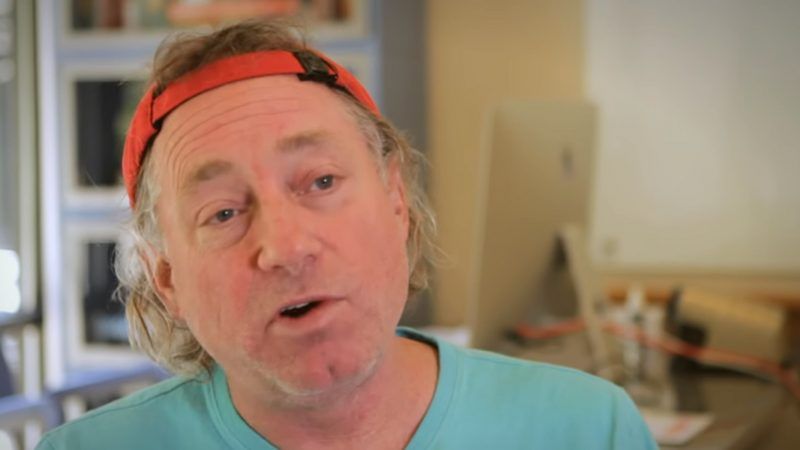Crossfit Deletes Facebook and Instagram After User Group Is Deplatformed
In the best of all possible worlds, such actions wouldn't be necessary. In the current climate, boycotting social media might spark a return to a robust marketplace of ideas.

For all the the talk of arbitrary, capricious, or ideologically motivated deplatforming of people, publications, and groups by Facebook, Twitter, YouTube, and other social media platforms, there's been less discussion about high-profile individuals and companies deleting their accounts in response to what they see as unfair, unethical, or misguided behavior.
That might change now that CrossFit, the immensely popular exercise and nutrition enterprise, has announced that it is permanently pulling its Facebook and Instagram accounts. According to an official statement published yesterday:
Facebook deleted without warning or explanation the Banting7DayMealPlan user group. The group has 1.65 million users who post testimonials and other information regarding the efficacy of a low-carbohydrate, high-fat diet. While the site has subsequently been reinstated (also without warning or explanation), Facebook's action should give any serious person reason to pause, especially those of us engaged in activities contrary to prevailing opinion….
Facebook…serves as a de facto authority over the public square, arbitrating a worldwide exchange of information as well as overseeing the security of the individuals and communities who entrust their ideas, work, and private data to this platform. This mandates a certain responsibility and assurance of good faith, transparency, and due process.
CrossFit, Inc., as a voluntary user of and contributor to this marketplace, can and must remove itself from this particular manifestation of the public square when it becomes clear that such responsibilities are betrayed or reneged upon to the detriment of our community.
The statement lists eight additional complaints about Facebook (which owns Instagram), These include the platform's willingness to censor certain accounts or pages at the insistence of governments, its "weak intellectual property protections," and its alleged willingness to act "in the service of food and beverage industry interests" by removing "accounts of communities that have identified the corrupted nutritional science responsible for unchecked global chronic disease." Despite CrossFit's strong condemnation—at one point, the statement declares that by purging dissenting views about low-carb, high-protein diets, "Facebook is complicit in the global chronic disease crisis"—the company does hold open the possibility of returning if Facebook and Instagram restore "good faith, transparency, and due process."
This is one way that marketplaces—whether for goods and services or for ideas—are supposed to work. In the parlance of political economist Albert O. Hirschman, CrossFit is not simply exercising its right of "exit" by leaving Facebook but also its right of "voice" by complaining publicly.
In the best of all worlds, such actions wouldn't be necessary. Instead of taking it upon themselves to police more than true threats and instead of calling for government regulation of expression, Facebook and other social media services would treat their platforms as free-speech zones and focus instead on providing users with tools to personalize their experiences.
But that isn't the world we live in, so CrossFit's public excoriation of Facebook serves an important corrective function. If more high-profile individuals, companies, content creators, and accounts take similar action, it'll be a more libertarian outcome than the government regulation increasingly supported by both liberals and conservatives.
Bonus video: Six years ago, Reason interviewed CrossFit founder Greg Glassman, who talked about being "a rabid libertarian" and a contrarian when it comes to workouts, diets, and more:


Show Comments (72)